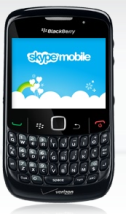Verizon Wireless prepares to take on the big names in mobile application stores, including Apple and Google, with the launch of its own carrier-specific “Vcast App Store” next week. Here, customers will be able to purchase mobile apps and pay for them on their monthly wireless bill. The store’s launch was announced at the recent CTIA conference, where Verizon disclosed the launch date (March 29) and revealed other details about the store’s planned operation. Most notably, the new VCast store has a revenue model that mimics that of Apple’s iTunes. Application developers partnering with Verizon keep 70% of the revenue generated from app sales, while Verizon keeps the remaining 30% for itself.

Verizon’s VP of marketing John Stratton recently explained in an interview with CNET that the company is not trying to compete with the other application stores already out there, but rather partner with them. The store already has one launch partner, RIM, makers of the Blackberry line of smartphones.
Verizon Deals Itself into the App Store Game
But what do the VCast Store partners get out of the deal? Not revenue it seems. Only developers and Verizon share in that. Instead, the partners simply get access to a wider audience, which in turn supports their own developer community. And more developers means more apps, and more apps means better smartphone sales. That reasoning may explain why RIM is on board at launch time. Blackberry smartphones, although still a staple in the business world and, interestingly enough, still at the the top of the smartphone OS market in the U.S., don’t have the developer community that Apple, Android and even Nokia with its Ovi store do. In fact, recent reports pegged Blackberry’s app store size as 4th largest in a lineup that included the top six smartphone makers.
At least RIM is aware of this issue. “It’s real simple; for this revenue stream to carry on and thrive,” explains Jim Balsille, co-CEO of RIM regarding the company’s mobile app offerings, “the applications need to be adopted so we can drive more BlackBerry sales. And this makes the carrier a strategic partner.”

One-Click App Shopping
In addition to using its own Web site to provide an online application store where apps can be purchased, rated and downloaded, app store developers who partner with Verizon will also have access to APIs that allow them to tap into other Verizon services like location-based services and messaging. But the biggest benefit is that Verizon app shoppers, whether accessing the store via the website or mobile phone, don’t have to pay for their applications on the spot using a specially created VCast account and associated credit card. Instead, the apps purchased are invoiced on a monthly cycle alongside minutes used and texts sent on customers’ cell phone bills.
For consumers, the benefit is a one-click process for app buying. For Verizon, the benefit is that they’ve just re-inserted themselves into the revenue stream that is the mobile application market – a market growing so fast, it’s expected to reach $17.5 billion by 2012. Unlike AT&T, which gets nothing every time an iPhone application is sold but then has to support the data traffic new apps bring to its network, Verizon hopes to make the mobile app store something that’s mutually beneficial to customers and carriers alike.
The VCast application store will launch March 29. Interested developers can find support and have their questions answered over on the Verizon Developer Community forums.
Don’t miss the ReadWriteWeb Mobile Summit
on May 7th in Mountain View, California! We’re at a key point in the history of mobile computing right now – we hope you’ll join us, and a group of the most innovative leaders in the mobile industry, to discuss it.

















